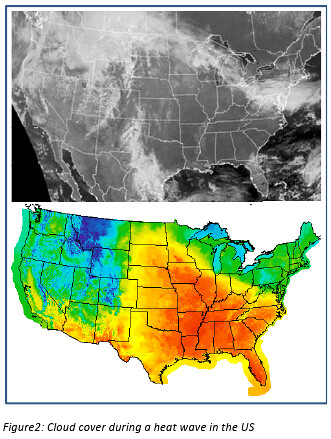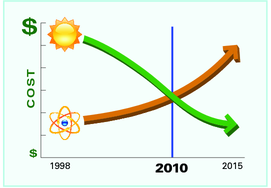After already hiking rates to pay for Plant Vogtle units 3 and 4,
Georgia Power now balks at taking any risk to its profit if costs
go above the projected budget.
Kristi E. Swartz wrote in the AJC today,
Georgia Power trashes regulatory staff’s financial proposal for Vogtle cost overruns:
 Georgia Power officials told state regulators they never would have
started to build a new multi-billion-dollar nuclear power plant if they
knew the company might be on the hook for certain potential cost overruns.
Georgia Power officials told state regulators they never would have
started to build a new multi-billion-dollar nuclear power plant if they
knew the company might be on the hook for certain potential cost overruns.
The company, they said, would be building a natural gas plant instead.
Georgia Power, which is the largest stakeholder in a partnership building
two new reactors at Plant Vogtle, is responsible for $6.1 billion of
the $14 billion project. The Georgia Public Service Commission’s staff
wants to cut into the utility’s allowed profit margin if the project
runs more than $300 million over budget. Profits would similarly get a
boost if the reactors come in under budget by the same amount.
The PSC deal sounds fair to me, or actually rather generous.
But not to the big-company socialists at Georgia Power:
At a PSC hearing Wednesday, company executives said the proposal could
drive up financing costs of the project, potentially damage the ability
to raise capital and eventually increase customer bills.
“As a member of the management team of the company, if this mechanism
had been part of the original certification, we very likely would have
not proceeded [with the project],” said Ann Daiss, Georgia Power’s
comptroller.
Privatize the profits; socialize the risks!
That’s the ticket!
They could spend less money building distributed solar farms
and wind generators and get them built a lot faster with very little
risk of cost overruns.
Why isn’t Georgia Power interested in that?
“Even under the most adverse outcomes, the units remain
highly profitable with very limited risk for investors,” [PSC staff member Tom] Newsome
said. “We’ve been talking a lot about investors in this hearing and
I think we need to be talking about [customers].”
Profits paid for by customer rate hikes and taxes from you, the taxpayer.
You’d have a better deal if Georgia Power built solar and wind plants.
-jsq
PS: Owed to Mandy Hancock.
ATLANTA — The Public Service Commission has approved Georgia Power’s plans to buy up to 50 megawatts of solar power by 2015.










